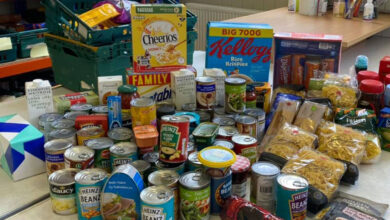
Safety During Calving Season
Calving season is on the horizon for many Saskatchewan producers. The to-do list is always long and includes organizing supplies, facilities, rations, vet visits and more. It’s hard work – the hours are long and fatigue is common. In busy times, it’s easy to de-prioritize a crucial part of farm management: safety. Every year, there are reports of producers who are injured handling freshly calved cows.
Calving is an especially sensitive time, where the behavior of normally tolerant cows can shift rapidly due to hormonal changes. First-calf heifers are particularly unpredictable. While most operations maintain low-stress facilities and take precautions around their cattle, it is important to set aside time to evaluate the safety of your calving system. Steps you can take to evaluate your system include:
- Educating yourself on low-stress handling techniques and facility design.
- Evaluating calving facility designs to ensure an escape route from cattle is always present.
- Consider investing in calving cameras, a welfare-friendly tool that allows risk-free monitoring of cattle until intervention is necessary.
- Temperament is a genetic trait; consider culling aggressive cows.
- After calving/bringing a pair into facilities, leave the cow and calf fully alone for about 30 minutes to allow the cow to calm down.
- Keeping your cell phone on you at all times in case of an emergency.
- Working in pairs if possible.
- Keeping children away from cows during calving.
Concussions are an important risk to consider during calving season. Recently, concussions and the consequences of not allowing proper recovery time have received increased awareness. Concussions can take two to four weeks to heal enough for you to return to normal activities, such as daily farm work. Alternate arrangements may have to be made and for sole operators this may be difficult. Concussion prevention and recovery should be taken very seriously.
Mental health in agriculture is another topic that should be a part of overall health management. Awareness of the effects of head injuries is important, as is ensuring that you have discussed a plan with the members of your operation in the case of a concussion or any injury that results in an inability to work.
Accidents happen – nobody starts their work day intending to get injured. As we approach a time in the year where fatigue and stress can contribute to otherwise preventable injuries, it is essential to think about safety and avoid putting yourself in situations that could end with an injury. Ensure that those working with or for you know that safety always comes first. Cows can be re-sorted and extra hands can be called in to help, but injuries can be long lasting or permanent. Set speed aside; the health and safety of everyone should be the first priority.
For more information on this topic, or any other livestock related questions, please contact your local livestock and feed extension specialist or call the Agriculture Knowledge Centre at 1-866-457-2377.
For the latest information and for more updates on everything Kindersley ‘Like’ the Kindersley Social Facebook page below…








































